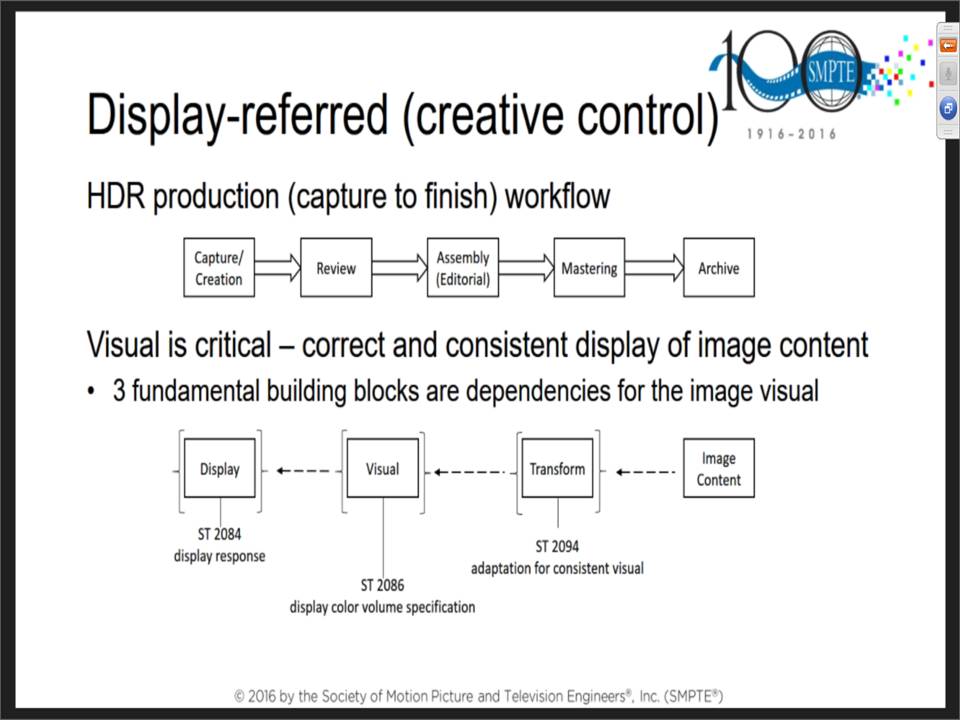Quote:
Originally Posted by gkolb

So what's the holdup?
The HDMI folks have announced 2.1 which is evidently needed to carry the increased data bits anticipated for Dynamic Metadata whether version 2094-10, -20 -30, -40 (shall I go on? Seems we have maxed out at 4 versions for now.)
The real kicker is can all 2016 and 2017 UHD tv models all be updated to HDMI 2.1 like Samsung has promised? Even Sony and LG's? It seemed implied that new HDMI chips (is it chips?) would need to be installed to handle the higher data rate (48Gb ?)
If it is hardware and HDR part deux standards that both need to be confirmed/ eventually approved, then indeed that could be a long tough haul. I don't recall any predictions when both of these would be ready to go together.
I guess that since HDMI 2.1 has been announced (if this hardware actually exists in fact at this point), then the dynamic metadata approval is the big headache for the standards group???
Do we even need DM, if Dolby Vision/HDR10 base layer discs have been confirmed by Dolby for production early (Spring, Summer) this year?? Or will DM be more useful as we get more HFR (120) and get closer to 8K displays?
So many questions...
|
First, Samsung hasn't promised anything. They demonstrated, at one point, HDR with dynamic metadata running on what appeared to be 2016 televisions, but no specific claims were made regarding the source (it could have been an app, not HDMI) or to what extent they might support it via a future a software update. This demo has snowballed into the oft-repeated statement that Samsung has promised dynamic HDR10 / HDMI 2.1 support on 2016 televisions. (When this discussion started, I don't think anyone imagined HDMI 2.1 would include any bandwidth increases. Mostly people were just hoping for dynamic HDR10 to match Dolby Vision's capabilities in a less proprietary format.)
More importantly, dynamic metadata and the new 48 Gb/s data rate are two independent developments in HDMI 2.1. Dynamic metadata requires very little bandwidth. It's basically just an extra header sent along with each frame with a few numeric values describing the rendering intent of that frame (maximum brightness, etc.). You don't even need HDMI 2.1 to send such a header, but without a standard there would be no guarantee the receiving device would know what to do with it. You'd just be making up your own protocol, which is kind of what Dolby Vision does and why you can't just plug a Dolby Vision capable source into any old HDMI 2.0a TV and get dynamic HDR.
48 Gb/s is what lets HDMI 2.1 achieve 8k at 60+ fps without compression. It absolutely isn't necessary to send dynamic HDR metadata, and in fact the spec allows a device to support the new HDR modes without supporting anything beyond HDMI 2.0's 18 Gb/s of bandwidth.






























 Linear Mode
Linear Mode

